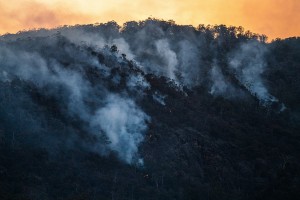
World must act now to combat rising temperatures, urges UN Chief
As the world becomes hotter and more dangerous for everyone, the world must rise to the challenge of rising temperatures urges the UN Secretary General António Guterres.
Guterres’ appeal comes against the backdrop of record temperatures and deadly heatwaves – from the United States to Africa’s Sahel and Europe to the Middle East – that have killed several hundred people.
During this year’s Hajj pilgrimage in Saudi Arabia, scorching heat claimed over 1300 pilgrim lives. According to news reports witnesses and experts said a combination of scorching temperatures, reaching as high as 51°C, and difficulties with crowd control, made the sacred event disorienting and dangerous.
“Billions of people are facing an extreme heat epidemic – wilting under increasingly deadly heatwaves, with temperatures topping 50 degrees Celsius around the world. That is 122 degrees Fahrenheit – halfway to boiling,” Guterres said at a recent press conference at UN Headquarters in New York.
“The message is clear: the heat is on. Extreme heat is having an extreme impact on people and planet. The world must rise to the challenge of rising temperatures.”
According to UN estimates, heat-related deaths for people over 65 years of age increased by about 85 per cent over the past two decades, while 25 per cent of all children today are exposed to frequent heatwaves and by 2050, that could rise to almost 100 per cent.
“We must respond by massively increasing access to low-carbon cooling, expanding passive cooling – such as natural solutions and urban design and cleaning up cooling technologies while boosting their efficiency,” Guterres said, calling for scaling up of finances to protect communities from “climate chaos”.
Mr. Guterres also underscored the need to step up protections for workers.
Over 70 per cent of the global workforce, or 2.4 billion people, are at substantial risk of extreme heat, according to a new report from the UN International Labour Organization.
The new data reveals that regions previously unaccustomed to extreme heat will face increased risks, while workers in already hot climates will confront ever more dangerous conditions.
Heat stress is an invisible and silent killer that can quickly cause illness, heatstroke or even death. Over time it can also lead to serious heart, lung and kidney problems for workers, the study underlines.
"We need measures to protect workers, grounded in human rights,” Mr Guterres stressed.
The UN chief also reiterated that it was crucial to recognize the myriad symptoms beyond extreme heat, such as hurricanes, floods, droughts, wildfires and rising sea levels.
The core issue is the reliance on fossil fuels and climate inaction, he stated, stressing that governments, especially G20 nations, the private sector, cities and regions, must urgently adopt climate action plans to limit global temperature rise to 1.5°C.
Alongside, countries must urgently phase-out fossil fuels and end new coal projects.
“They must act as though our future depends on it – because it does.”
(Banner photo by Matt Palmer on Unsplash)